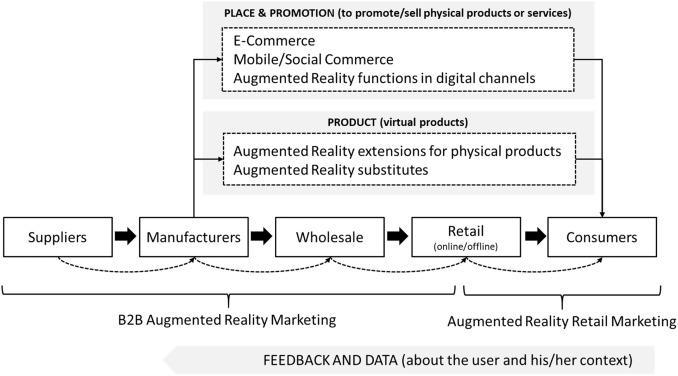Implementation Specialist for Learning platforms: Key roles, Skills, and career Pathways
With the rapid evolution of education technology, institutions are seeking talented professionals to guide the implementation and integration of digital learning tools. One of the most in-demand positions in this sector is the Implementation Specialist for Learning Platforms. Whether at universities, colleges, or schools, this role is critical for ensuring smooth transitions to innovative teaching solutions. In this article, we explore the key roles, essential skills, career pathways, and practical tips for job seekers aspiring to become implementation specialists in education technology.
What Does an Implementation Specialist for Learning Platforms Do?
An Implementation Specialist manages the seamless deployment and integration of educational technology solutions—such as Learning Management Systems (LMS), classroom engagement tools, and digital assessment platforms—within academic environments. These professionals serve as the bridge between software vendors, IT teams, educators, and students to ensure technology enhances the learning experience.
Core Responsibilities
- Project Management: handling rollout plans, timelines, and resource allocation for platform implementation projects.
- Training and Support: Creating instructional materials and delivering training sessions for faculty, staff, and students.
- Technical Integration: Overseeing system compatibility, data migration, and integration with legacy software or campus networks.
- User Experience Optimization: Gathering user feedback,troubleshooting issues,and recommending enhancements for increased engagement.
- Stakeholder Collaboration: Liaising with administrators, educators, IT staff, and external vendors to ensure alignment with institutional goals.
- Documentation: preparing detailed implementation guides, FAQs, and support resources to encourage best practices and compliance.
Essential Skills and Qualifications for Implementation Specialists
To excel as an Implementation Specialist for Learning Platforms, candidates need a blend of technical expertise, project management prowess, and interpersonal skills. Below are key areas of competency:
technical Skills
- Understanding of Learning Platforms: Familiarity with popular LMS (e.g., Canvas, moodle, Blackboard) and digital assessment tools.
- IT Fundamentals: Basic knowledge of databases, API integration, networking, and cloud-based technologies.
- system Configuration: Ability to customize platforms for institution-specific needs, including permissions, course structures, and analytics.
Project Management Abilities
- Agile Methodologies: experience with agile project management tools and techniques.
- Time Management: Coordination of project milestones and deliverables in fast-paced academic environments.
- Change Management: Leading transitions, mitigating resistance, and ensuring smooth adoption across stakeholders.
Dialogue and Collaboration
- Training Delivery: Ability to communicate complex concepts simply for non-technical users.
- Teamwork: Effective collaboration in cross-functional groups, including faculty, IT staff, and vendors.
- Customer Service: Providing high-quality support and building positive relationships within the academic community.
Education and Certifications
- Bachelor’s degree in Education Technology, Computer Science, information Systems, or related field.
- Relevant certifications such as Certified Education Technology Specialist or Project Management Professional (PMP) are highly valued.
Career pathways for Implementation Specialists in Education Technology
Implementation specialists have promising career progression opportunities within higher education and K-12 institutions.
Entry-level Positions
- Technical Support Analyst
- EdTech Coordinator
- Instructional Technology Assistant
Mid-Level Positions
- Implementation Specialist
- LMS Administrator
- Education technology Trainer
Advanced Roles
- Education Technology Manager
- Director of Digital Learning
- Senior Implementation Consultant
Many professionals transition from technical support roles into specialist positions, later advancing into management and leadership.Those with extensive project experience may also move into consulting or vendor-facing roles, influencing broader technology adoption strategies across academic institutions.
Benefits of Working as an Implementation Specialist in Education Technology
pursuing a career as an Implementation Specialist for Learning Platforms brings a unique set of rewards:
- Impactful Work: Directly contribute to enhanced teaching outcomes and improved digital literacy.
- Continuous Learning: Stay at the forefront of education technology innovations and pedagogical advancements.
- Collaborative Environment: Work closely with a diverse team of educators, technologists, and students.
- Career Advancement: Expand your skills into management, consulting, or product progress roles.
- Competitive Compensation: Many institutions offer excellent salary packages and benefits to attract top talent in education technology.
Practical Tips for Job Seekers in Education Technology Implementation
If you’re considering becoming an Implementation Specialist for Learning Platforms, here are some actionable tips to enhance your job search and career success:
- Gain Hands-on Experience: Volunteer for technology integration projects within your current institution or seek internships with educational software vendors.
- Build a Portfolio: Document successful projects, trainings delivered, or user guides created to showcase your expertise in technology implementation.
- Stay Updated: Regularly follow industry publications, attend webinars, and pursue continuing education to keep pace with new technologies and best practices.
- Network Actively: Join professional associations in education technology and connect with peers at conferences and online forums.
- Tailor Your Resume: Highlight relevant technical, project management, and training experience expressly geared toward education platforms.
- Prepare Stories for Interviews: Be ready to discuss specific implementation challenges you’ve overcome and how your work improved the educational experience.
- Consider Certifications: strengthen your credentials with certifications in education technology platforms or project management frameworks.
Trends Shaping the Implementation Specialist Role
The education technology sector is constantly evolving, and with it, the responsibilities of implementation specialists. Here are a few key trends affecting this career:
- remote learning Growth: Institutions increasingly rely on virtual classrooms and online assessments, requiring robust platform integration.
- Data-Driven Insights: Specialists are leveraging analytics and reporting features within learning platforms to improve instructional decision-making.
- Adaptive Technologies: The rise of AI-driven personalized learning demands more sophisticated implementation strategies.
- Cybersecurity focus: Growing emphasis on secure data management and privacy compliance for student and faculty data.
conclusion
A career as an Implementation Specialist for Learning Platforms offers a dynamic blend of technology, education, and project management. Professionals in this role play a pivotal part in shaping modern learning environments in universities, colleges, and schools. By developing the right skills, staying informed about industry trends, and actively seeking opportunities for professional growth, job seekers can launch rewarding careers in education technology.If you’re passionate about transformative learning and eager to be at the heart of digital innovation in academic settings, this is the perfect career path for you.

